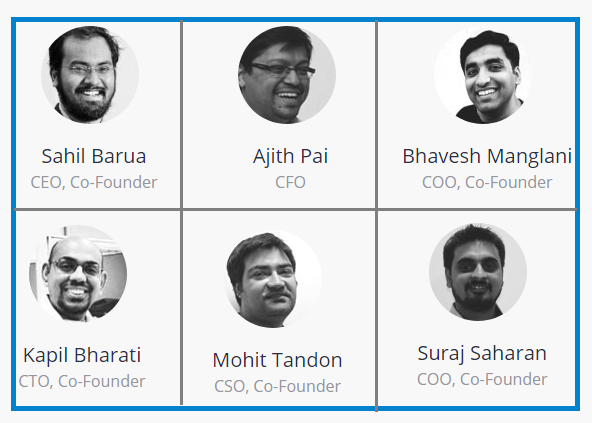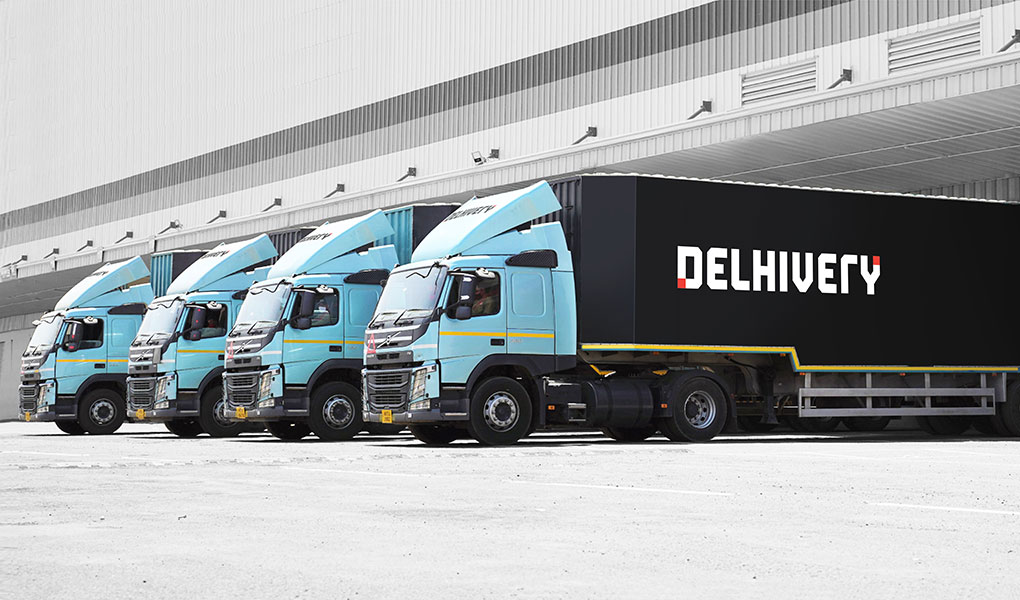Delhivery is a eleven-year-old Indian delivery logistics startup based in Gurugram (Haryana) that was launched in 2011. It is a logistics startup that primarily serves the e-commerce market.
Where it began as a food delivery company, it has since expanded to provide a full range of logistical services in nearly 2,300 Indian cities and more than 17,500 zip codes. It became a unicorn in 2019 after raising $413 million and having a valuation of $1.5 billion.
Several notable Indian firms become unicorns due to their innovative, out-of-the-box, and easy offerings. Where Delhivery established its mark by becoming one of them and actually impacted the perspective of delivery services around the country.
Delhivery, India’s largest independent e-commerce logistics company, has secured $277 million in funding headed by Boston-based investment firm Fidelity. Delhivery successfully conducted its initial public offering (IPO) on May 11, 2022, and concluded on May 13, 2022. The face price was Rs 1 per share, while the IPO price ranged from Rs 462 to Rs 487 per share. The lot size was set at 30 shares. The IPO of Delhivery was subscribed to 1.63 times. It is worth noting that Delhivery’s shares were listed at Rs 493 per share on the BSE and Rs 495.2 per share on the NSE, both of which were higher than the IPO price of Rs 487.
Carlyle Group, Tiger Global, Fosun International, SoftBank Vision Fund, Nexus Venture Partners, Multiples, and CPP Investment Board are among the investors in Delhivery.
It is one of the few firms that has sought to digitise the logistics market’s demand and supply structure through a freight exchange platform.
How did Delhivery start?
The story of this unicorn is really intriguing. It all started late one night when Sahil Barua and Suraj Saharan ordered meals from a local restaurant and struck up a discussion with the delivery person.
The discussion trail compelled them to visit the eatery and converse with the owner more. Where they realised that the restaurant is about to close.
As a result, they took on the obligation of employing all of the workers present. This resulted in the creation of the startup unicorn “Delhivery.”
To begin, the organisation launched an endeavour to provide a solution to restaurants and their food delivery concerns within one hour. This was regarded as a big worry since they recognised the need for a restaurant delivery network.
As a result, they began to be hyperlocal. Within a half-hour, both Sahil and Suraj began completing delivery orders for the eateries. Mohit Tandon, Bhavesh Manglani, and Kapil Bharati eventually joined Sahil and Suraj on the team.
Their firm was successful, and one of their investors helped them launch an e-commerce venture. They found their food delivery capability was optimal, which prompted them to consider entering the e-commerce market.
Having delved into the new domain of e-commerce delivery, they discovered that something was missing, which their competitors were unable to bridge. Because traditional delivery and e-commerce delivery were so different, there was a huge opportunity in the e-commerce sector delivery.
This is when they transitioned from being hyperlocal to being in the e-commerce industry.
About Delhivery and How it Works?
Using Delhivery as a platform, it connects consignors, agents, and drivers that provide road transport options.
Delhivery made it a point to reduce the involvement of brokers in the creation of certain of its assets, such as trucks. Whereas trucking was the most common means of transportation for Delhivery since it was significantly more efficient and assured activities took place around the clock.
The organisation claims to have delivered over 1 billion orders and worked with over 10,000 customers.
They have also been linked to all of India’s top e-commerce corporations and significant enterprises.
The couriers are allotted an area of no more than 2 square kilometres for the last step of delivery. This enabled them to do many deliveries throughout the day while saving time.
In the year 2020, when we first experienced the spreading Covid 19 epidemic, the corporation expected to invest more than $40 million over the course of two years. This was done with the intention of expanding and increasing the size of its fleet. This was done to fulfil the increasing demand for orders as individuals purchased online during the epidemic.
Delhivery’s logo reads, “Changing the world, one package at a time.” As a result, the organisation strives to transform the logistics sector by attempting to innovate via the application of new strategies on a daily basis.
Delhivery Business Model
The company operates on a B2B business model, providing services mostly to business people. Customers are not charged anything in this case; instead, companies must pay.
The company’s service offerings may be divided into the following categories:
- Last-mile service.
- Logistics in reverse.
- Vendor to Warehouse and Customer.
- Third-party storage.
- Payment collection and shipping, for example.
Keeping these categories in mind, transportation accounts for the majority of their company, which follows a plug and play strategy in which they provide solutions to all clients that need to ship their items to their respective customers.
The Process involved in the Delivery
Instead of the hub and spoke delivery strategy, the firm employs a distribution model.
According to the distribution model, each branch of the firm operates as a hub. In this approach, shipments may be dispatched to clients without difficulty.
So, anytime a product order is placed online, it is picked up from the manufacturer and delivered to a processing facility. It is sorted in the processing unit according to the product’s target location (city), which is known as the first-mile operating procedure. A line haul is utilised in the future to move items from processing facilities to destination cities. In summary, the product is delivered from the warehouse to the customer via the last mile operation.
Also Read: FedEx – The Creation Of Logistics Empire
Delhivery’s Top Competitors
Delhivery is now a full-fledged logistics firm, and it will undoubtedly face stiff competition in the market.
Blue Dart, Flexport, Ecom Express, DotZot, FSC (Future Supply Chain), Echo Global Logistics, BlackBuck, Delex, Delivery.com, and others are among these state competitors.
About Sahil Barua Co-Founder and CEO of Delhivery
Sahil Barua, Co-founder and CEO of Delhivery, formerly worked as a consultant at Bain & Company. Sahil holds a Mechanical Engineering degree from the National Institute of Technology in Karnataka.
Delhivery Co-Founders/Team
Sahil Barua and Suraj Saharan created this unicorn, which was afterwards joined by Bhavesh Manglani, Kapil Bharati, and Mohit Tandon.

Delhivery: In a Nutshell
In today’s world, clients place a premium on qualities such as convenience and simplicity of use when it comes to both physical and online platforms. As a result, organisations who have made inroads into this criterion by providing comfort, ease, and convenience in product or service supply have increased their presence and growth in a competitive market sector.
Not only that, but with the growth of technology and digitalization, it became necessary to solve the inefficiencies in the Indian logistics business, which has long undersized the national economy. Poor planning, faulty forecasting of demand and supply, which resulted in increased carrier costs, theft, damages, and delays, to name a few.
Delhivery gained a competitive advantage in the industry by expanding and improving its hyperlocal business strategy, which centred on the e-commerce sector. Despite great competition, this has led to its success since its start.
To read more content like this, subscribe to our newsletter




